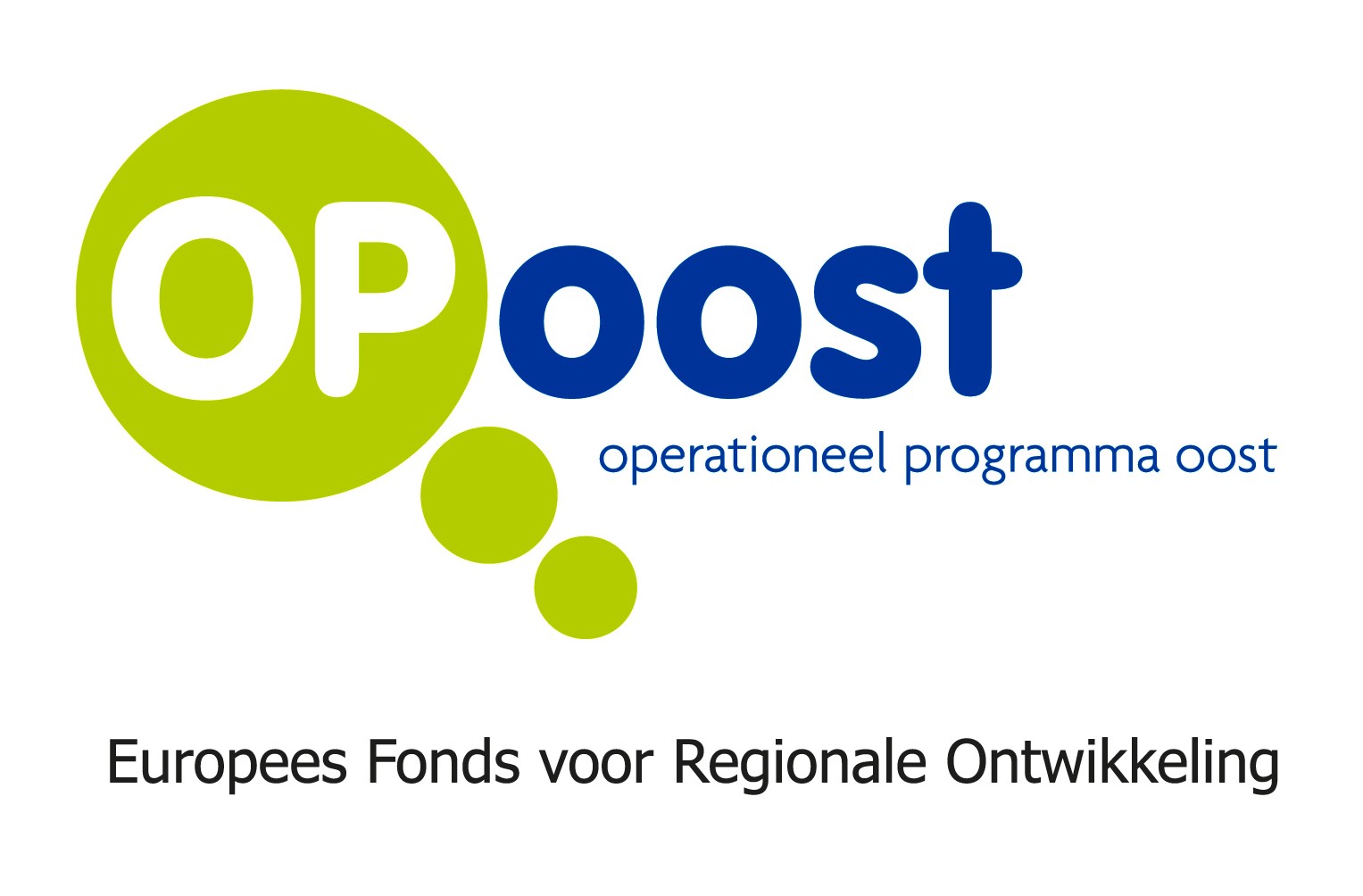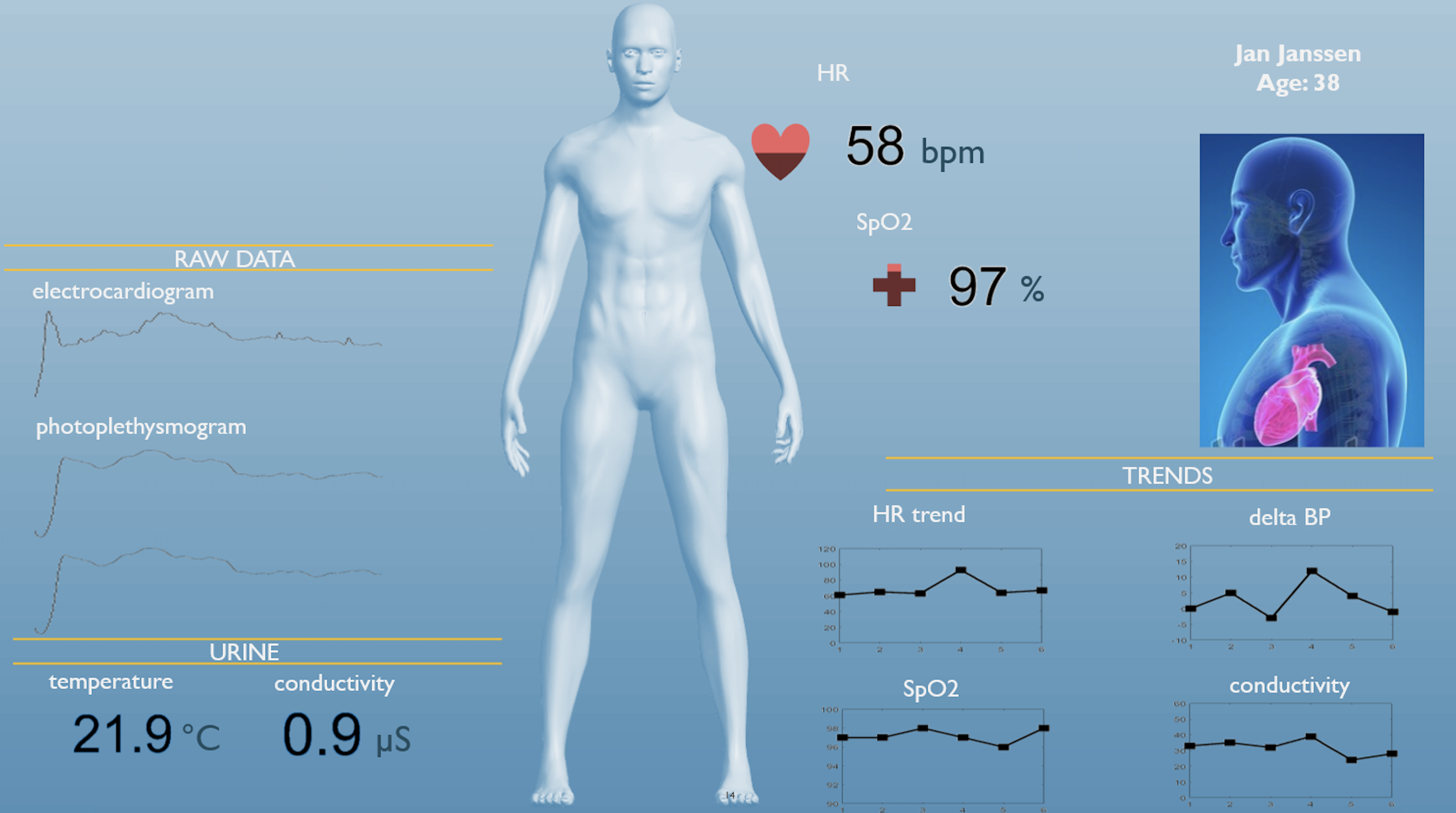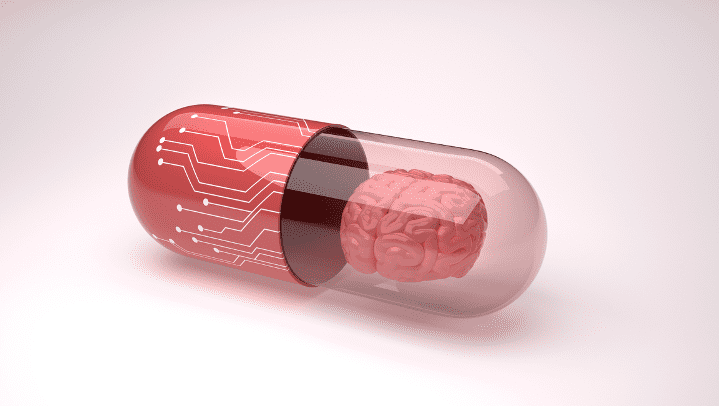The world’s population is growing exponentially. Precision agriculture running on integrated photonics is helping to keep our food supply safe and sustainable in the long term.
Sensors with integrated photonics as key to our food security, also in the future
OnePlanet Research Center Introduces OpenPlanet; An accessible digital environment for entrepreneurs and organizations in health, agriculture and food.
OpenPlanet is an accessible digital ecosystem for entrepreneurs and organizations in health, sustainable agriculture and food. It is a secure data & application environment in which data is collected, analyzed and shared. OpenPlanet aims to provide an answer to the current fragmentation of solutions and the lack of knowledge to effectively convert data into insights and digital services. OpenPlanet offers users the opportunity to share and enrich relevant data for end-user applications across application domains. it also provides an environment for developing advanced algorithms and models.
Imagine if there was one open, secure data & application environment for companies and organizations working in the fields of sustainable agriculture, food and health?
The platform consists of applications for data collection (sensors, apps, links with various data sources), data connectivity (sensor network, digital infrastructure), data storage and analysis (AI, digital twins), a marketplace for algorithms and applications for action perspective, support and feedback to end-users (apps, dashboards). For example, data from wearables can be shared live between doctor and patient, or data from sensors can be used to optimize real-time processes in agriculture.
OpenPlanet is a collaborative project of OnePlanet Research Center, Orikami, IVIDO, JoinData, and SIDN. OpenPlanet has received a REACT-EU contribution from East Netherlands. With this, Europe is investing in the provinces of Overijssel and Gelderland in a rapid economic recovery after COVID-19.
This is a contribution that is in line with the priorities of the province of Gelderland: “The build-up of the data ecosystem and associated activities are aimed at green, digital and resilient recovery of the economy through economic structure strengthening through targeted investments in facilities and valorization activities that aim to give SMEs the opportunity to develop new ideas and products. test, develop and scale up in an accessible way’. – Province of Gelderland



Know more about OpenPlanet?
Jacob Beeuwkes, Program manager OpenPlanet Program – OnePlanet Research Center
Together with key partners, OnePlanet Research Center is using the newest technology innovations to tackle problems in supply chains of perishable food products. Our goal is to improve product quality and reduce greenhouse gas emissions and food waste with sensing and digital twin technology. The innovative sensor systems and the digital twins results in real-time status information and decision support. This opens possibilities for advanced quality-based control allowing for more efficient food chains with better matching supply and demand, more insight in the quality of the food products and less food waste.
Imagine that.. we could use sensors and digital twins to improve the quality of perishable food products, while at the same time reduce greenhouse emissions and food waste!
To make a real impact within this domain, it is key to establish real-time access to supply chain conditions and product information in each stage of the supply- and production chain. OnePlanet Research Center is exploring the use of (i) advanced IoT sensor systems to monitor products in the supply chain,(ii) real-time data access and data integration to create the full picture of what is going on in the supply chain, and (iii) relevant models that allow for prediction of product characteristics at each moment of its lifetime.
With these elements in place, a digital twin of the product in the food supply chain can be created and continuously updated. The digital twin will allow for simulation of future behaviour in various scenarios, and thereby enables chain actors to make optimal decisions at each moment in time.
Two prototypes of a digital twin will be developed:
- The digital twin of the fresh supply chain, in which the emphasis lies on the long transportation and quality development of tropical fruits, such as bananas or avocados, and on non-destructive quality sensing of glasshouse vegetables such as tomatoes.
- And the digital twin of the meat production chain, in which the emphasis lies on individual quality monitoring of carcasses.
This work is done in a close collaboration between system and data integrators, sensor developers, use case partners and research institutes Wageningen Research and Imec as part of their collaboration in the OnePlanet Research Center initiative. OnePlanet is an innovation center for chip and digital technology in agri, food, health and environment. It is a collaboration between nano-technology R&D institute imec, Radboud University, Radboudumc and Wageningen University & Research.
This collaboration is a great example of how digital transformation can be applied in practice and have both economic and societal impact by reducing food waste, increasing product quality, reducing greenhouse gas emission, and increasing the profitability of the food chains.
A smart bathroom that non-invasively and regularly measures and integrates blood pressure, hydration status and other health biomarkers to provide people with personalized feedback, is the exciting goal of Smart Bathroom for Health. The technology can serve as a research platform to collect objective health data at home and contribute to new (dietary) interventions and early detection of diseases.
What if… we could detect early markers of disease and develop personalized nutrition, lifestyle and medical interventions, without the need for hospital visits and time-consuming, often uncomfortable, manual measurements of bodily functions?
Measuring physiological indicators such as blood pressure and hydration status multiple times a day would allow for early detection and, possibly, prevention of diseases. Variations in blood pressure and oxygen levels can be early signs of cardiovascular diseases. Urine protein levels and fecal inflammatory markers give insight into urinary and gastrointestinal health. And gradual weight loss can go unnoticed, but might point to poor nutrition.
Advanced sensors
In Smart Bathroom for Health, OnePlanet Research Center aims to develop a variety of advanced sensors for measuring health: integrated in and around the toilet, the mirror, etc. These sensors will connect to a digital platform that interprets these data, identifying trends, predicting health issues and giving personalized advice.
Experts from imec, a specialist in high-tech sensors and wearables, are collaborating closely with nutritionists and doctors from Wageningen University & Research, Radboud University and Radboudumc, to overcome the practical and technological challenges anticipated with such a disruptive innovation. They must, for example, select those biomarkers that are most reliable and representative for health. The technology should need minimal power, and be moisture-resistant.
Fundamental to the OnePlanet vision is to ensure what is developed makes a clear and measurable difference in real life. That’s why food, pharma and technology companies are invited to join the innovation process.

Towards personalized feedback
In 2019, the first prototype of a smart toilet – it measured an individual’s physiology – was tested among visitors to the Lowlands event in Biddinghuizen, the Netherlands. A second, optimized, prototype will be tested in Summer 2021, in volunteer’s homes. The next step will be to expand the system, adding sensors to measure hydration status and fecal markers of inflammation, as well as software and artificial intelligence solutions that allow for the generation of personalized feedback.
Citizen nutrition is a large personalized nutritional study in Gelderland, where new measurement techniques are being used and new behavioral intervention / models can be tested. The collected data enables the development of precision nutritional models and targeted personalized feedback.
The goal of this innovation trajectory is to set up a participatory study in which new measurement techniques, behavioral models and the development of precise nutritional models come together.
The goal is to create insights on effective interventions for person-oriented eating-behavior guidance, the development of associated employable technology and develop contributions to health interventions in personal living environments.
A smart pill that non-invasively monitors inflammation, microbiota activity, nutrient uptake and other gut health biomarkers is the planned outcome of Ingestibles for Gut Health. This will provide food and pharma companies and technology providers with new opportunities for targeted improvement of gut health and overall wellbeing.
What if consumers could measure nutrient uptake and other biomarkers for gut health – and get personalized advice on diet, lifestyle and medicine use – just by ingesting a small pill? It would save consumers, patients and medical staff tedious and time-consuming medical examinations, and help scientists and doctors understand precisely what is happening in the gut. Which nutrients are absorbed and where? Which metabolites are produced by the microbiota? And precisely where in the intestines are individuals with Crohn’s Disease affected, or those with ulcerative colitis or Irritable Bowel Syndrome?

Better understanding
Though very common, gut diseases are currently not well understood. Improving our understanding would provide food and pharma companies, and doctors, opportunities to detect health issues at an early stage and develop more-targeted interventions. This would improve people’s quality of life and – as gut health is related to immune function, glucose metabolism and other key processes in the body – overall wellbeing.
Completely new technology
In Ingestibles for Gut Health, OnePlanet Research Center aims to develop completely new technology that will incorporate miniaturized sensors in a pill, connect them to a digital platform with advanced chips that can read these data, and transmit it to a data platform that can interpret the recorded parameters.
Experts from imec, specializing in high-tech sensors, micro-electronics, and wearables, are collaborating closely with nutritionists, chemists, physicians and gastroenterologists from Wageningen University & Research, Radboud University and Radboudumc to overcome the technological and practical challenges anticipated with such a disruptive innovation. The pill should, for example, be easily swallowable and resistant to digestive enzymes. It should also be easy to track, and require a minuscule amount of power.
Fundamental to the OnePlanet vision is that what is developed makes a clear and measurable difference in real life. That’s why food, pharma and technology developers are invited to join the innovation process.
Towards personalized advice
The first generation of ingestibles is validated in a clinical trial beginning of 2024. Fifteen healthy volunteers were included in this 100% controlled dietary intervention studying protein fermentation. We successfully utilized 69 ingestibles and collected over 4000 hours of data. The functionality of the first generation of smart pills will be extended over the coming years. We will in parallel develop an ingestible able to take a gut fluid sample for more extensive offline analysis, e.g. for microbiome analysis or biomarker exploration. By 2027, a highly advanced sensing platform will be available, including digital gut models, and a dashboard, to monitor gut health.
A data-driven digital platform that can predict optimal diet and lifestyle interventions for an individual. This will be the exciting outcome of Human Digital Twin. The technology will serve as a research platform to integrate and analyze objective health data, facilitating early detection of diseases and powering the development of personalized products and services.
What if… every consumer had their own ‘virtual twin’ that gives them insight into their health status, and provides personalized advice on diet, lifestyle and medicines?
Accompanied by cutting-edge devices, like ingestible sensors and apps, it would empower consumers to make moment-by-moment changes in diet and lifestyle. Which food products should they eat to improve their gut health? How does this link to their mental wellbeing?
Personalized intervention
Personalized interventions have proven to be more effective at improving health than one-size-fits all approaches. In our ageing society, where the number of people with chronic diseases is on the rise, they can make a great difference to quality of life and health care costs.
AI-guided, digital platform
In Human Digital Twin, OnePlanet Research Center is developing an AI-guided, digital platform for continuous collection, integration and analysis of health and nutrition data, in specific contexts, collected via sensors. Imagine, for example, an ingestible sensor providing data on microbiome and gut health. The platform gives insight into an individual’s risk of developing lifestyle related diseases, such as diabetes, cardiovascular diseases and burnout. The self-learning system also predicts which diet and lifestyle interventions will work best for each individual, and in which situation.
In this innovation program, experts from imec, specializing in high-tech sensors and wearables, are collaborating with nutritionists, behavioral experts and doctors from Wageningen University & Research, Radboud University and Radboudumc, to solve the complex issues that come along with such a disruptive innovation. How, for example, to ensure safe storage and ethical use of huge amounts of data? And what software and insights are needed to build in functionality that automatically optimizes motivational feedback to the individual?
Towards personalized advice
The digital data platform is being constructed using health data collected in OnePlanet’s innovation programs Ingestibles for Gut Health, Smart Bathroom for Health and Studies in Nutrition & Mental Wellbeing. Their experts have also initiated, in collaboration with industry, a study that will collect and integrate contextual data on stress and physiological functions such as heart rate and skin conductance. This will allow prediction of individuals’ stress levels and give personalized advice on stress reduction.